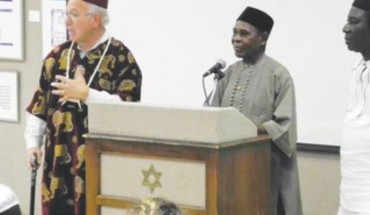In November 2015, the Israeli government approved the immigration of some 9,000 Ethiopians of Jewish ancestry in line with its “law of return” which gives Jewish descendants the right to immigrate to Israel and grants them citizenship if they convert to Judaism.
The Ethiopian Jews known as the Falaash Mura were members of the Beta Israel community who had lived in Ethiopia and Eritrea for over a millennia. They were termed the ‘Faalash Mura’ because they converted to Christianity or stopped practicing their Jewish faith in the late 19th and early 20th century due to pressure from missionaries which was at times overtly aggressive.
After the Israeli government completed the airlifting of the Beta Israel community in the 1991, the Faalash Mura began their campaign for immigration. Though it initially resisted, the Israeli government began taking in the Faalash Mura in the late 1990s and the current batch of 9000 is seen as the last set of Africans of Jewish heritage who still live in the continent. However, many Igbos of Nigeria would strongly reject this point of view.
It is a widely held belief among the Igbos, albeit to varying degrees of certainty, that they are descendants of the Jews. The argument for Jewish ancestry first gained international attention in the 18th century following the arrival of Christian missionaries in Igbo land who discovered many cultural similarities between the Igbo and the Jewish traditions. One of the missionaries, George Thomas Basden, went on to write a book on these cultural comparisons and in it proposed that the word ‘Igbo‘ evolved as a corruption of the word ‘hebrew’.
Cultural resemblances apart, historians say it is not improbable that some of the tribes of Israel migrated to parts of Africa after the Assyrians invaded Israel’s northern kingdom in the eighth century B.C. and forced 10 tribes into exile. However, the highest international awareness that the story of Igbo-Jewish lineage has gotten in recent times was in the form of a CNN article in 2013. In the article, Eze A.E. Chukwuemeka Eri, the King of the Aguleri, the oldest and one of the most prominent Igbo communities, told the news network that his community was founded by Eri, the son of Gad, the seventh son of Jacob.
There is general consensus among Igbo historians and scholars that Eri, through his offspring, founded Aguleri, Nri (another historic Igbo kingdom) and several other Igbo communities—which are collectively known as the Umueri. The differences arise in discussions concerning where Eri came from. The traditional Igbo religion holds that Eri is a sky being sent to earth by God (Chukwu in Igbo language).
Another school of thought holds that he migrated from southern Egypt, while others, like the Eze Eri, claim that he along with his two brothers—Arodi and Areli (as mentioned in the book of Genesis) emigrated from Israel to establish present day Igbo land. Some Igbos have taken their convictions of a Jewish heritage to new heights by converting to Judaism or becoming members of what is commonly referred to as Sabbath Churches.
One of such persons is Kadmiel Izungu Abor who was featured in the CNN article and referred to himself as Jewish Igbo. “The son of Yaakov, Jacob, [was] Gad and I learned that he was among those people who went out of Israel to exile,” Abor told CNN. “So from there he had a son called Eri and a son gave birth to a son called Aguleri and that’s how the Igbo race began.”
Despite this strengthening Igbo-Jewish identity, there is also a vocal derision of the idea that Igbos are the descendants of Jews. Perhaps the most vocal is the book They Lived before Adam by Famous Igbo scholar, Professor Catherine Acholonu. In the award-winning book, Professor Acholonu argued that Igbo land was in fact the original home of Homo Erectus and that ‘out of Africa’ migrations were more or less an ‘out of Igbo land’ migration. She has also described the linking of Igbo ancestry to the Jews whom she believes are themselves of Igbo heritage.
In 2013 she told the CNN that “Everybody is excited to say they belong to the people of the Bible because the Bible is reigning.” Still, the belief in a Jewish heritage holds water in Igbo land solidified in part by Christianity to which most Igbos belong and their strong attachment to the Bible which glorifies the Jews as specially chosen by God.

